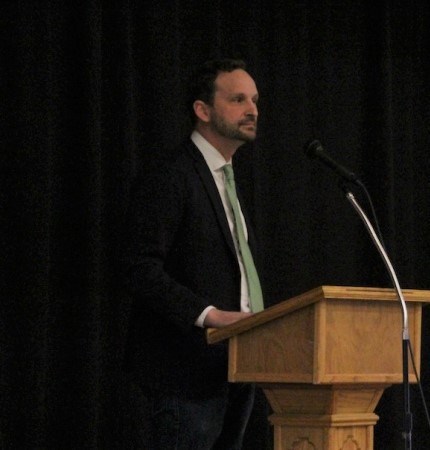Leader of the Official Opposition Ryan Meili, announced Wednesday during his daily press conference he was “disappointed” with the measures taken in regards to the province’s Social Services pandemic response plan.
“I was really disappointed with the measures that were brought up by the province, and sold as the response plan to help folks in situations of homelessness or poverty and higher risk at this time,” said Meili.
Meili said there are some positives that came from the province’s plan to help the most vulnerable during the COVID-19 crisis.
One part of the province’s pandemic response plan is a modified delivery service model. When emergency shelters are unable to meet the needs of an individual or family because of capacity issues, Social Services will support those in need with funds for emergency hotel stays and will work to transition clients to permanent housing.
“The fact of the matter is there were some positive things there. Making sure that we can have people self-isolating or getting shelter in hotels is good,” said Meili.
“We want to make sure there is also support to follow that, so that they are successful there,” he added.
Another part of the province’s pandemic response plan announced Tuesday, includes one-time additional funding of $171,000 targeted at meeting the extra cost pressures emergency shelters are experiencing as they continue to serve those in need during the COVID-19 pandemic.
Meili said he thought the $171,000 was “such a small amount.”
“Especially when you think of Alberta [who] gave $25 million to shelters. Ontario committed a couple hundred million to increase supports through Social Services,” said Meili.
Meili said Saskatchewan’s contribution is nowhere near enough to support shelters through the COVID-19 crisis.
“It’s a bare sliver of the operating budgets of these facilities. Those dollars will be eaten up in no time, as the costs have increased for cleaning, for staffing for keeping people physically distant and all the supports that go into that,” said Meili.
Meili added right now, people on the frontlines are under extreme stress and they are working harder than ever in a job that is always difficult.
“They are helping some of those are the most at risk from COVID-19, most likely to harm themselves or to pass on the virus,” said Meili.
“Now is not the time for small change, it’s a time for real investment in protecting our communities. Especially those that are most vulnerable.”




